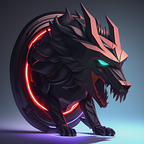AI & Robots vs. Humans: A Complex Tapestry of Competence, Imagination, and Integration.
The dawn of artificial intelligence and robotics has sparked a polarizing debate about the future relationship between these technological marvels and the human race. Will robots replace humans, rendering us obsolete in the grand tapestry of existence? Or is it the humans who, by embracing and integrating AI and robots into their lives, will ascend to new heights of productivity and innovation? In this comprehensive exploration, we delve into the arguments presented by both sides, dissecting the facets of competence, imagination, and integration that define the evolving relationship between AI, robots, and humans.
Section 1: The Rise of the Machines — Arguments for Robot Dominance
1.1 Power and Precision: Proponents of robot dominance argue that machines possess unparalleled power and precision. Robots are not subject to the limitations of human physicality, allowing them to execute tasks with unmatched speed and accuracy. In environments where precision is paramount, such as manufacturing and surgery, robots are proving their dominance.
1.2 Incompetence of Humans: Advocates for robot superiority often point to human fallibility and inefficiency. Humans are susceptible to fatigue, distraction, and error, while robots can operate tirelessly and without deviation from programmed protocols. In scenarios where perfection is critical, robots are seen as the more reliable option.
1.3 Prediction of the Future: Some enthusiasts predict a future where robots surpass humans in every conceivable aspect, from intellectual endeavors to emotional intelligence. The argument revolves around the idea that the relentless march of technology will inevitably lead to the creation of sentient, self-aware machines capable of outperforming their human counterparts.
Section 2: The Essence of Humanity — Arguments Against Robot Dominance
2.1 Emotions and Feelings: Detractors of the robot dominance theory argue that the essence of humanity lies in our capacity for emotions and feelings. While robots may simulate emotions, they lack the depth and authenticity of human experiences. Love, empathy, and compassion are distinctly human traits that cannot be replicated by machines.
2.2 The Power of Imagination: Human imagination, often considered the driving force behind creativity and innovation, is a formidable argument against robot dominance. While AI can analyze data and identify patterns, it is argued that true innovation stems from the human ability to dream, envision the future, and create the previously unimaginable.
2.3 Ethical Considerations: A critical aspect of the human experience is our moral compass and ethical decision-making. Critics of robot dominance stress that machines lack the capacity for ethical judgment, empathy, and a sense of right and wrong. Handing over control to machines could lead to unforeseen ethical dilemmas and unintended consequences.
Section 3: The Integration Advantage — Humans Embracing AI and Robots
3.1 Neuralink and Human-Machine Integration: The integration of AI into the human experience takes center stage with innovations like Neuralink, spearheaded by Elon Musk. Neuralink seeks to seamlessly integrate the human brain with AI, potentially unlocking new dimensions of cognitive ability. This argument suggests that humans who embrace such technologies will not be replaced but will, in fact, evolve beyond their current limitations.
3.2 Enhanced Productivity: Data shows that humans who embrace AI and robots in various industries experience a significant boost in productivity. Whether it’s in manufacturing, healthcare, or finance, the integration of technology enables humans to amplify their capabilities, streamline processes, and achieve unprecedented levels of efficiency.
3.3 The Adaptive Advantage: An argument favoring human dominance revolves around our capacity for adaptation. While robots may excel in specific tasks, humans possess the ability to adapt to diverse and dynamic environments. The argument is that humans who adopt and adapt to technological advancements will not only survive but thrive in a world where AI and robots play integral roles.
Conclusion:
The debate surrounding the potential dominance of robots over humans is complex and multifaceted. While proponents argue for the precision and efficiency of machines, detractors emphasize the irreplaceable qualities of human emotions, imagination, and ethical decision-making. The integration of AI and robots into the human experience introduces a new dimension to the discourse, with advancements like Neuralink and enhanced productivity challenging the notion of replacement.
In the grand tapestry of the future, it appears that the key lies in a harmonious coexistence between humans and technology. As we navigate the evolving landscape of AI and robotics, the choices we make regarding integration, ethical considerations, and the preservation of our unique human qualities will shape the trajectory of this intricate relationship. Whether robots dominate, humans prevail, or a symbiotic relationship emerges, the journey into the future is an exhilarating exploration of possibilities and challenges that define our collective destiny.
